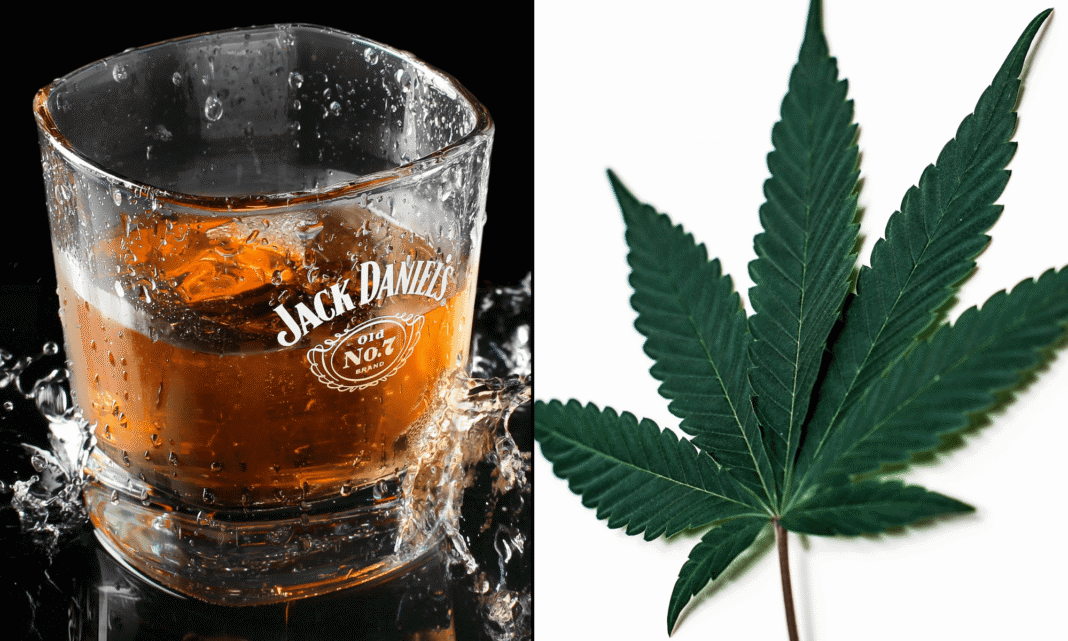According to a federally-funded scientific study, marijuana use can lead to reduced alcohol consumption and decreased cravings among heavy drinkers.
The full-version of the study obtained by MEDCAN24 was in a form that is pre-proof. In it, they found out that for “some individuals who are heavy drinkers, cannabis can serve as a replacement for alcohol.” They also noted that “cravings reduction” could be a possible mechanism.
Authors from Colorado State University (CSU), University of Colorado Boulder (UCB) and University of Colorado Anschutz Medical Campus (UCAMC) claim that this project is “the world’s first to examine the effects of alcohol on cannabis consumption in the legal marketplace.”
Participants drank 25 per cent less alcoholic drinks on average when cannabis was used compared with alcohol alone. They noted the significance of this finding and wrote that marijuana continues to be the most commonly used substance by people who consume alcohol.
Cannabis use is associated with reduced alcohol consumption.
The scientists selected 61 heavy users of cannabis who were also heavy drinkers. Each participant completed two sessions in a mobile laboratory parked outside their homes—a workaround to federal restrictions on handling legal marijuana in campus labs. In one laboratory, the participants drank only alcohol. The other lab had the participants use their own cannabis from legal markets before they drank. Participants in both sessions received an “priming drink” and had up to 4 more drinks.
The researchers further divided the participants into 23 people, called “substituters,” who reported drinking significantly less and a steady drop in their alcohol cravings after cannabis consumption. Other 23 people, called non-substituters, drank more or the same as before cannabis use. Their cravings were not affected. Fifteen people did not drink at all during the two sessions.
The researchers concluded that the findings of this human lab study “provide initial support to the idea that cannabis sold on legal markets can be substituted for alcohol by some people who drink heavily.” They also noted that participants’ consumption of alcoholic beverages was significantly reduced when they self-administered marijuana.
Those who consumed less alcohol after using cannabis experienced a greater reduction in their desire for alcohol.
Although the findings are encouraging, they warn that there may be limitations in the study parameters. It was noted that the study was conducted in a specific order, with marijuana consumed prior to alcohol. Mobile labs are a great way to prevent federal funds from being cut off for universities. However, they may not accurately reflect real drinking environments. Also, they note that their sample did not represent the general population as most of it was composed by white men.
In their paper, the authors urge “further research that explores additional factors such as individual characteristics and contexts which could predict whether marijuana can be used to replace alcohol.” They stress how important it is to examine clinical implications of recovery methods for people who do not refrain from drinking. Alcohol misuse is still a significant cause of death that can be prevented. This research may help to inform strategies for harm reduction.
The National Institute of Alcohol Abuse and Alcoholism of the National Institutes of Health funded this study, which was submitted as an article to Drug and Alcohol Dependence. It is one of many recent studies on marijuana’s effects on drinking.
Cannabis self-administration before alcohol reduced alcohol consumption significantly compared with alcohol offered without cannabis.
Scientists at the University of Sydney conducted a study in which they investigated the idea that cannabidiol, a non-intoxicating substance, could help to mitigate drinking problems. British Journal of Pharmacology published the research with Australian National Health and Medical Research Council funding. The study found CBD to be a promising candidate for reducing voluntary alcohol consumption.
According to an article published by Nature in early this year that was funded by the federal government, CBD can treat alcohol addiction disorder. This is because it reduces withdrawal symptoms while simultaneously reducing the chance of relapse. This study’s results, they said, “underscore CBD’s therapeutic potential for alcohol abuse disorder (AUD), and give mechanistic insights about its effects.”
This also comes at a time when younger Americans are increasingly using cannabis-infused beverages as a substitute for alcohol—with one in three millennials and Gen Z workers choosing THC drinks over booze for after-work activities like happy hours, according to a new poll of 1,000 young professionals.




